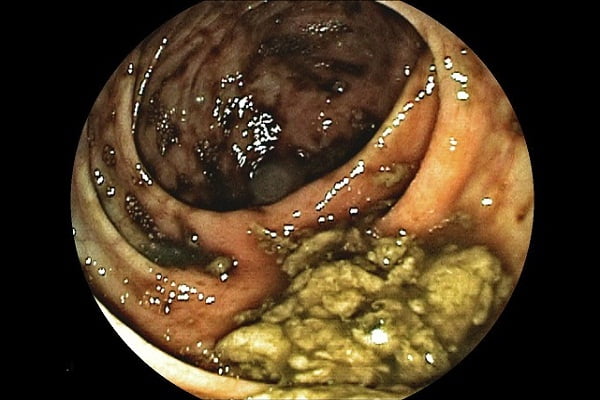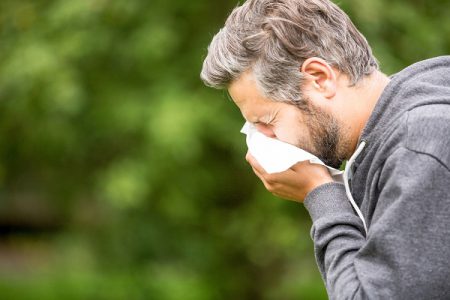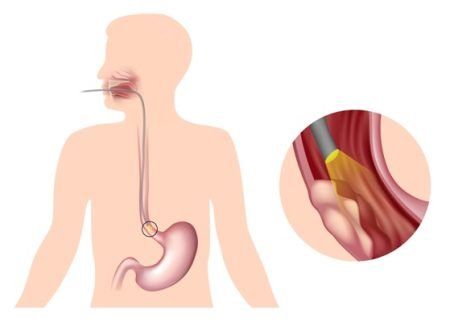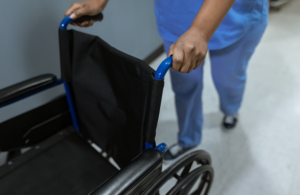Stage 4 Esophageal Cancer
- Updated on: Jun 10, 2024
- 3 min Read
By
- Published on Jun 10, 2019


What is esophageal cancer?
Esophageal cancer develops in the esophagus, the long tube connecting the throat to the stomach responsible for transporting swallowed food for digestion. It typically starts in the cells lining the esophagus and can manifest anywhere along its length. This cancer affects more men than women and stands as the sixth leading cause of cancer-related deaths globally. Geographical incidence rates differ, with certain regions witnessing higher occurrences due to factors like tobacco and alcohol consumption, specific dietary practices, and obesity.
In the early stages, when it’s easy to treat, esophageal cancer has very few signs and symptoms. Unfortunately, it is rarely detected in early stages. As esophageal cancer begins to progress and advance to the later stages, symptoms become more noticeable and the cancer becomes more complicated to treat.
Stage 4 esophageal cancer
A stage 4 esophageal cancer or tumor may be any size and has grown beyond the esophagus. In this stage, the disease may have spread to lymph nodes or distant organs including the liver or abdominal cavity. Usually, stage 4 esophageal cancers are very hard to be treated completely. Treatment is used mainly to help keep the cancer under control for as long as possible and to relieve any symptoms produced by the disease.
The most common symptom of esophageal cancer is feeling tired and unwell. Other signs and symptoms depend on the location of the progression of the cancer in the body.
Stage 4 esophageal cancer symptoms
The most common place for esophageal cancer to metastasize is the liver. However, it may also spread to lymph nodes, to the lungs or to the stomach. People may face problems in swallowing and some weight loss if the cancer is in the esophagus or food pipe.
Stage 4 esophageal cancer symptoms associated with lymph nodes
A lymph node is a small bean-shaped structure that is part of the body’s immune system. Lymph nodes filter substances that travel through the lymphatic fluid, and they contain white blood cells (lymphocytes) that help the body to fight against the infection.
The most common symptom if esophageal cancer has metastasized to the lymph nodes is that they become swollen or hard. Swollen lymph nodes in the neckline may make it hard to swallow. Tumor cells may also prevent lymph fluid from draining away. This might lead to swelling (lymphoedema) in the neck region or face due to fluid accumulation.
Stage 4 esophageal cancer symptoms associated with liver
Some common signs and symptoms of esophageal cancer metastasized in the liver are as follows:
- discomfort or pain on the right side of the abdomen
- poor appetite and weight loss
- ascites (the accumulation of protein-containing fluid within the abdomen)
- yellowing of the skin, whites of the eyes or itchy skin
Stage 4 esophageal cancer symptoms associated with lungs
Some common signs and symptoms of esophageal cancer spread into the lung are as follows:
- a severe cough, coughing up blood
- breathlessness
- ongoing chest infections
- a pleural effusion (an unusual amount of fluid around the lung)
Stage 4 esophageal cancer symptoms associated with the stomach
Some common signs and symptoms of esophageal cancer metastasized in the stomach are:
- heartburn or indigestion
- excessive burping
- feeling bloated
- pain in the upper abdominal area
- poor appetite and weight loss
- darker stool due to blood
Esophageal cancer stage 4 life expectancy
In stage 4 esophageal cancer, the tumor has metastasized or spread to other parts of the body. It is estimated about 5 out of 100 people survived for 5 years or more after the diagnosis of advanced esophageal cancer.
The best defense against esophageal cancer is to know the warning signs and risk factors involved and consult your healthcare professional if you suspect any signs and symptoms associated with esophageal cancer.













2 Comments
Between 45 and 90 of women with BRCA genes will develop breast cancer. Wilms Tumor WT is a highly curable cancer when detected and treated early.
investigated the effect of ATO and ATRA on the neutrosphere formation of U87MG glioblastoma cells carrying wild type p53 and or codon specific p53 mutant R273H. Health care providers don t use blood estrogen levels to assess breast cancer risk